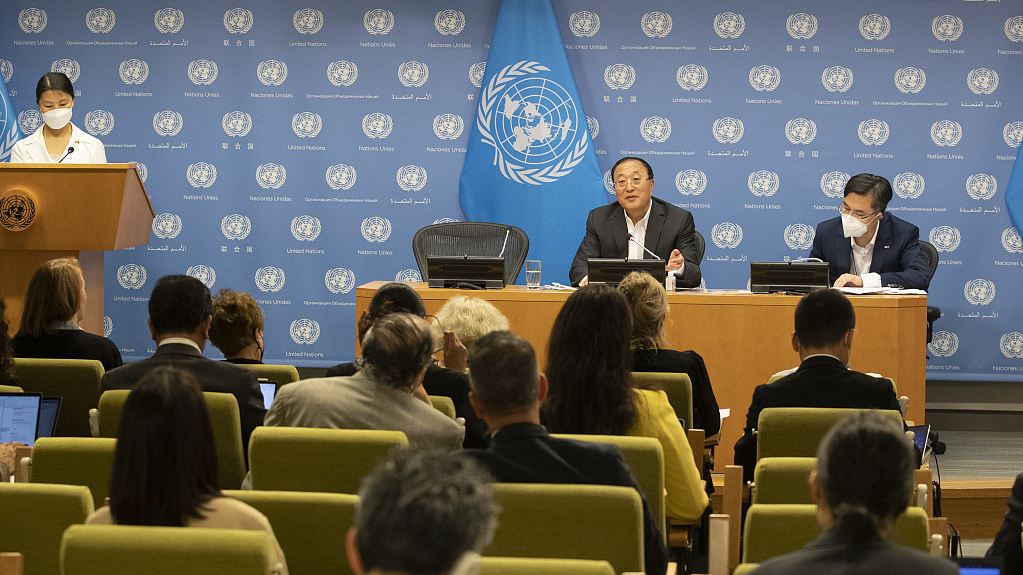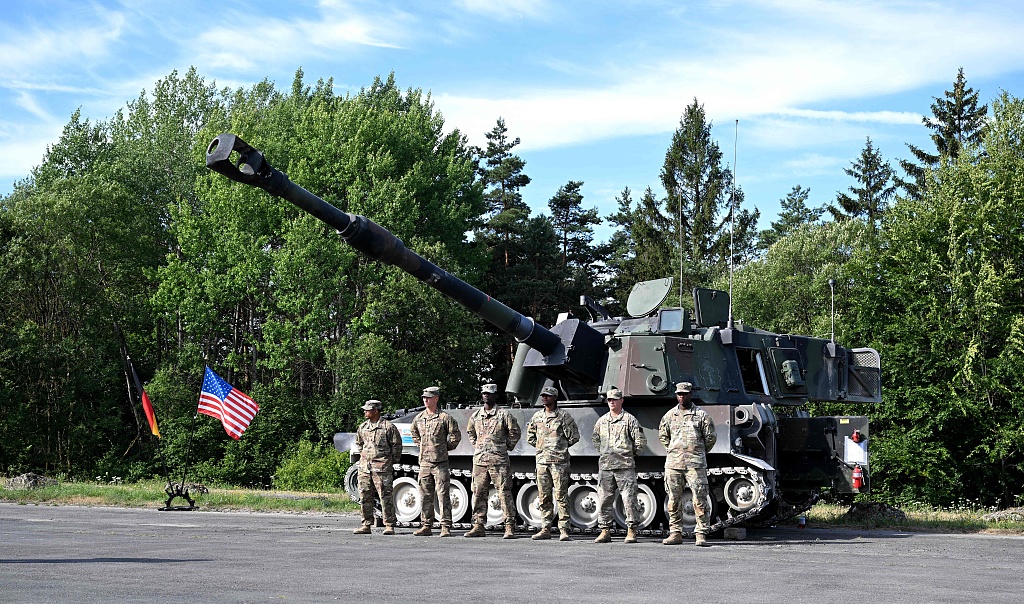
China takes over the rotating presidency of the United Nations Security Council for the month of August, UN headquarters, New York, U.S., August 1, 2022. /CFP
China takes over the rotating presidency of the United Nations Security Council for the month of August, UN headquarters, New York, U.S., August 1, 2022. /CFP
Editor's note: Hayat Bangash is a freelance columnist on international affairs with degrees in business administration and war studies. The article reflects the authors' opinions, and not necessarily the views of CGTN.
The global security architecture that emanated from the ashes of World War II was well intended. Yet, the intent was lost with the world's changing polarities and the hijacking of the definition of international order by a handful of countries.
Later, at the turn of the century when globalization was taking root and national interests were becoming international interests, new players entered the arena with legitimate concerns. They put up a convincing case that global governance was far from being a workable arrangement.
China, too, is calling for building a regional and global security architecture that is balanced and sustainable. China's deputy permanent representative to the United Nations, Geng Shuang, last week called on the international community to build a balanced global and regional security architecture, while saying China will protect its own sovereignty at all costs.
Despite isolationist tendencies emerging in the West, globalization is not reversing any time soon. China, therefore, calls for thinking in collective terms, where all countries remain considerate of each other.
Whenever this compassion was absent, the world saw knee-jerk reactions to the most serious of issues. A key priority in this regard is to uphold the UN Charter rather than leave the international order to the whims of countries with hegemonic designs. Humanity has agreed to this document after ages of discontent and violence. It should hence be respected and abided by.
There are also cases where the UN Charter is selectively applied. What happens with such double standards is that humanity's trust in the UN erodes, inching the world closer to where it was before this largest multilateral body was formed.
Now, as the world's unipolar moment has come to an end, multipolarity is again becoming the predominant order. Any country that wishes to stick to its exceptionalist ideologies is living in the past. In this era of interdependence, others' interests cannot be trumped while trying to perpetuate one's own.
Amid all the noise, a positive development from France and Germany is their realization of a balanced and sustainable European security framework to establish freestanding communication channels, independent of American diktat.
This framework is fully endorsed by China to strengthen the lasting security of Europe and to build the continent's strategic autonomy. If it enables the EU to maintain equal-footed dialogues with the U.S. or NATO, it will be a step closer to making the global security architecture more balanced.
While many European countries remain part of NATO, the alliance clearly remains dominated by the U.S. This is exactly why NATO has not been able to safeguard European interests. The insecurity generated by the ongoing Ukraine crisis is a testament to the fact.

U.S. soldiers stand in front of a parked howitzer M109 Paladin during the "Dynamic Front 22," the U.S. Army-led NATO and partner integrated annual artillery exercise in Europe, in Grafenwoehr, near Eschenbach, southern Germany, July 20, 2022. /CFP
U.S. soldiers stand in front of a parked howitzer M109 Paladin during the "Dynamic Front 22," the U.S. Army-led NATO and partner integrated annual artillery exercise in Europe, in Grafenwoehr, near Eschenbach, southern Germany, July 20, 2022. /CFP
In any direction NATO expands, Europe will be affected. Meanwhile, the U.S., with no skin in the game, can continue pushing Ukraine to confront Russia and bear no implications. As long as Europe remains reliant on the U.S.-led bloc, the world's slide into another Cold War remains a foreseeable possibility.
The divisions caused by bloc politics hamper stability at a time when joint efforts are needed to bring the global economy out of its present state. Binary options presented by such inherently divisive systems only cause additional blows to multilateralism.
It must be understood that subjection to blocs only increases the likelihood of conflict. Since members cannot make decisions independent of bloc leaders, they often find themselves in situations that are disadvantageous to them and are forced to take actions that push them into confrontations.
The same will be the case in a NATO-like alliance the U.S. is trying to work up in the Asia-Pacific. Needlessly apprehensive of China's peaceful economic rise, the U.S. is rallying nations of the region. But for these nations, as the author Robert D. Kaplan puts it in his book "Asia's cauldron: the South China Sea and the end of a stable Pacific," China is a geographical fact and the U.S. is merely a geopolitical concept.
These countries have been observing abrupt American disengagements in Syria and Afghanistan and how a chessboard approach initially enticed Ukraine and then led it straight into devastation.
China, on the other hand, is advocating for the Global Security Initiative (GSI) to encourage peace and prevent conflict.The GSI addresses security both in traditional and non-traditional domains and defines it as a common concern.
That is because no country can remain isolated from instability. Rising food and fuel prices in the aftermath of the Ukraine crisis are a stark example. All countries thus have an equal right in building security mechanisms as well as equal responsibility in upholding them.
As long as multilateralism and dialogue are a priority, the world will remain on the path of establishing a balanced global security architecture. The pace, meanwhile, will depend on major powers' willingness to think for humanity in collective terms.
(If you want to contribute and have specific expertise, please contact us at opinions@cgtn.com. Follow @thouse_opinions on Twitter to discover the latest commentaries in the CGTN Opinion Section.)

